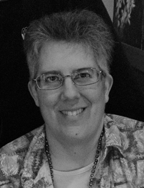 Did you hear that current MFA student Tracy Mishkin has a chapbook available through Finishing Line Press called I Almost Didn’t Make it to McDonalds? Did you know that order it now by clicking here? Are you with me that trying to support each other as writers is an essential part of any MFA community?
Did you hear that current MFA student Tracy Mishkin has a chapbook available through Finishing Line Press called I Almost Didn’t Make it to McDonalds? Did you know that order it now by clicking here? Are you with me that trying to support each other as writers is an essential part of any MFA community?
Sorry for all the questions. I’ve just been in an interrogatory mood since I got the chance to interview Tracy about I Almost Didn’t Make it to McDonalds, which I’m thrilled to share with you here.
What binds these poems together as a collection?
They were the best stuff I had written as of March 2013, according to my poet friends Linda Lee and Pat Cupp, who looked through many, many poems with me. While I am deeply grateful to my friends, that is a lame answer to your question, and I look forward to learning more about turning a group of poems into a collection in Alessandra Lynch’s class “Shaping a Poetry Manuscript” this summer.
Was it your decision to title the chapbook after the poem “I Almost Didn’t Make it to McDonald’s”? Why do you think it fits?
Yes, it was my decision. I thought it would intrigue potential readers. Finishing Line Press gives authors the option of designing their own covers, and I took the cover photograph at my son’s school, where I make my daily illegal right turn. Risk is a theme in many of these poems—”Pillar of the Community” and “Beginning of the End” come immediately to mind—and of course I have to take risks as a poet in order to write well.
When were most of these poems written? Was there something in particular that inspired this collection or your initial foray into poetry?
I have been writing since at least 9th grade, when I ripped off (or riffed on) a line of Thoreau and won a school contest. These poems were written between 2002, when I first took a class with Alice Friman, and 2013—about half of them before 2010.
Who are your poetic influences?
I’d rather tell you which teachers have had the greatest impact on my work: Chris Forhan, Alice Friman, Alessandra Lynch, and David Shumate. I also learned a great deal at the Indiana University Writers’ Conference, which I attended twice. I studied with A.R. Ammons, Ken McClane, and Phyllis Janowitz at Cornell University, but that was in the 80s, so I am not sure how much it influences me today.
 Explain your affinity for the prose poem. What do you think differentiates the form, and how do you best utilize it?
Explain your affinity for the prose poem. What do you think differentiates the form, and how do you best utilize it?
I have been writing prose poems since 2010 or so. The form gives me more flexibility as a writer of primarily narrative poems. When I begin a poem, I usually know if it is going to be a poem with line breaks or a prose poem. But sometimes a prose poem becomes lineated as I revise or a lineated poem goes prose, sometimes months after its inception. Sometimes I turn a lineated poem into a prose poem when I am unsatisfied with the line breaks, but I would argue that it’s not because I “despair of making sense of the line,” as Denise Levertov wrote in 1979, but because I realize that the poem is not a line-break-driven poem and it would be stronger in a prose form.
Your family features prominently in many of your poems. Do you share your work with the members of your family who you’ve written about? If so, what has been their reaction?
Everyone reacts differently. My mother loves to read the poems I write about her, even the one where I imagine her dying. My father is a very private person, so he prefers that I don’t write about him. My teenage son likes all the poems I have written about him, except for one that sounds like it is about him but isn’t. My husband is not a poetry person, so he has not read any of my work, but he inspires some of my best writing and doesn’t have a problem with me writing about him. I try to respect the feelings of my family and friends, but it can be tricky. I am proud to say that I recently wrote a long poem about my great-uncle Joe’s experiences as a POW in World War II and he loved it.
What will it mean to you to sell the advance copies needed to get the chapbook published?
My chapbook will not be printed unless I can sell 55 advance copies by April 25th. If I do, they will print 250 and give me 25. The print run increases as one’s advance sales increase. This is the reality of publishing with a small press, one step up from a vanity press, to be honest. But it’s an important step up. A real publisher likes my work enough to publish a chapbook—wow!—as long as I sell enough copies. Publishing a book of poetry is one of my life-long dreams. I hope that my Butler friends and colleagues will help make that dream come true. In the past, I have been frugal and borrowed people’s books from the library. But that’s changed now. Buy mine and I’ll buy yours. In fact, I might just buy yours regardless.



